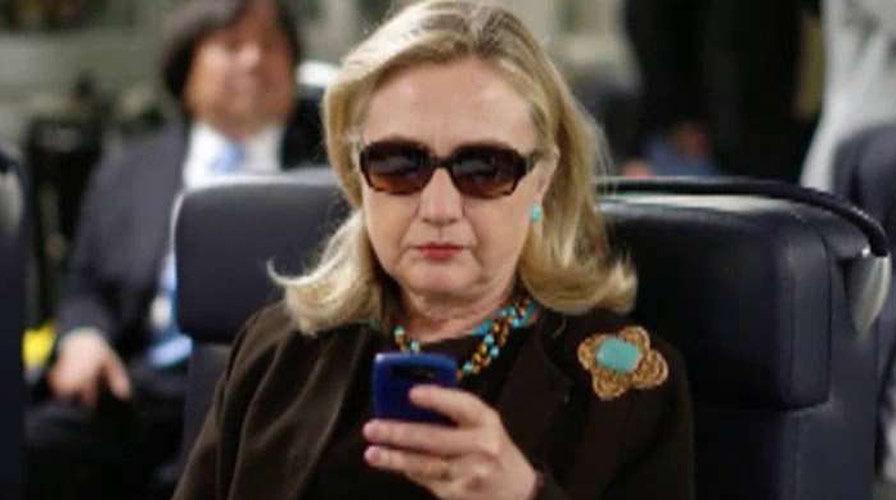FBI releases documents related to Clinton email probe
On 'Special Report,' Catherine Herridge provides insight into how the conclusion to not charge Clinton was reached
Hillary Clinton said roughly three dozen times that she couldn’t “recall” specific details or events -- including training sessions on handling classified information -- when FBI officials questioned her extensively about using a private email server while secretary of state, according to official documents released Friday.
Clinton’s responses were revealed in FBI documents about the roughly three-hour, July 2 interview that concluded the agency’s investigation without recommending criminal charges, despite finding that Clinton was “extremely careless” in using the private server system for emails with classified government information.
The newly-released documents did not reveal significant, new information about the federal government’s probe into the issue, but they created more distractions for Clinton, the Democratic presidential nominee, and her campaign as voters continue to question her trustworthiness.
Clinton, who was secretary of state from 2009 to 2013, said she could not recall specific emails. But she also said that she could not recall the details of briefings on how to handle classified information.
“Clinton recalled being briefed on Specific Access Program information (for classified material.) But could not recall any specific briefings on how to handle information associated with the SAPs,” the FBI said in the documents.
In another entry, the FBI addresses the issue of Clinton using her BlackBerry after being advised about the risks of using her personal one.
“Clinton said she requested a secured BlackBerry while at State but could not recall why they were unable to provide one,” according to the documents.
In December 2012, Clinton suffered a concussion from a purportedly fall and weeks later developed a blood clot.
“We are pleased that the FBI has released the materials from Hillary Clinton's interview, as we had requested,” campaign spokesman Brian Fallon said after the documents were released. “While her use of a single email account was clearly a mistake and she has taken responsibility for it, these materials make clear why the Justice Department believed there was no basis to move forward with this case.”
Jason Miller, spokesman for Republican presidential nominee Donald Trump, said the files “reinforce Clinton’s “tremendously bad judgment and dishonesty.”
The several-dozen pages released Friday also show Clinton repeatedly claimed to have little training or understanding about the classification process -- despite leading the department that handled such information on a regular basis and having a security clearance.
The document dump also revealed the gaps that remain in the record. Not only were numerous sections redacted, but the files showed the FBI could not obtain 13 Clinton mobile devices that may have been used to send emails from her personal email address, in addition to two iPads.
According to the files, Clinton claimed to have relied on the judgment of her aides and other officials to handle classified material appropriately. She even told investigators -- when asked what the “C” marking meant before a paragraph in an email marked “Confidential” – that “she did not know and could only speculate it was referencing paragraphs marked in alphabetical order.”
The FBI document notes that the email was in fact marked “classified at the Confidential level.” And when asked about different classification types like “Top Secret,” Clinton went on to say she “did not pay
Clinton's server was found to have more than 2,000 emails with classified material. Most were retroactively classified, but FBI Director James Comey has disputed Clinton’s insistence that none of them were marked as such at the time.
Clinton has repeatedly said her use of private email was allowed. But in July she told FBI investigators she "did not explicitly request permission to use a private server or email address," the FBI wrote. They said no one at the State Department raised concerns during her tenure, and that Clinton said everyone with whom she exchanged emails knew she was using a private email address.
The Associated Press contributed to this report.





